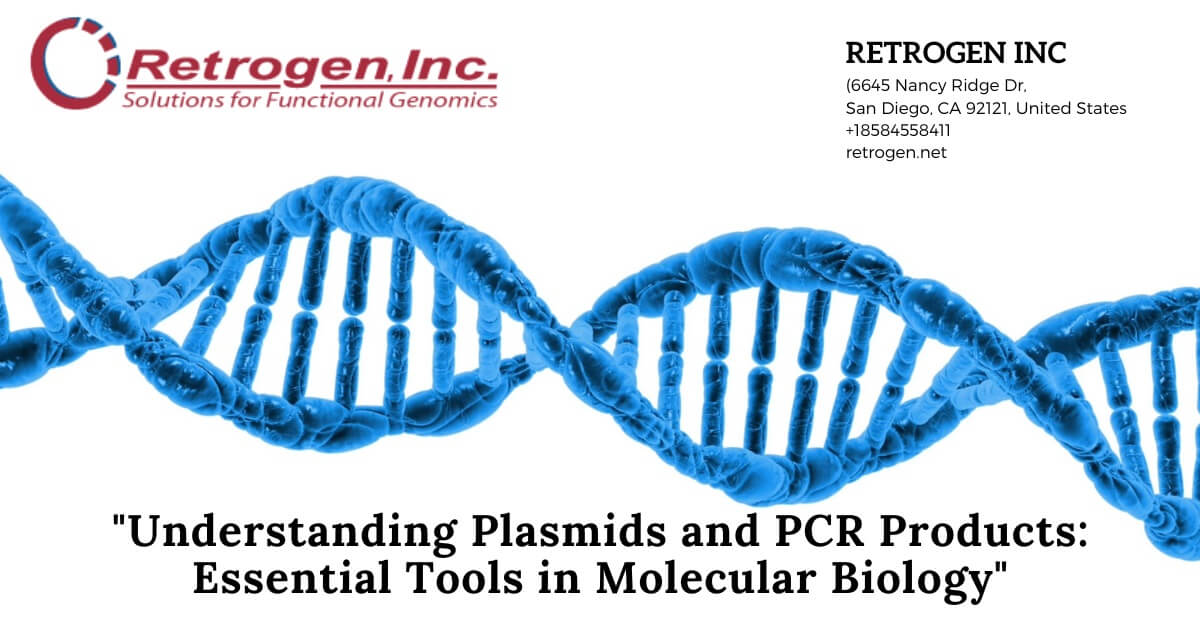
In the realm of molecular biology, plasmids, and PCR products are two fundamental components that have revolutionized the way scientists study genes and manipulate DNA. Plasmids are circular DNA molecules that naturally exist within bacterial cells and serve as vectors in genetic engineering. On the other hand, PCR products are the result of the Polymerase Chain Reaction, a technique used to amplify specific DNA sequences. This article aims to provide a comprehensive understanding of plasmids and PCR products, their roles in research, and their applications in various scientific fields.
What are Plasmids?
Plasmids are small, circular, double-stranded DNA molecules that are distinct from a bacterium’s chromosomal DNA. They are capable of replicating independently within a host cell. Plasmids often carry genes that may benefit the survival of the bacteria, such as antibiotic-resistance genes. Due to their ability to transfer genetic material between cells, plasmids play a critical role in horizontal gene transfer.
In genetic engineering, plasmids are used as vectors to introduce foreign DNA into a host cell. Scientists can insert genes of interest into plasmid vectors, which can then be introduced into bacterial or eukaryotic cells. This process is fundamental for producing recombinant proteins, gene therapy, and the development of genetically modified organisms (GMOs).
The Role of PCR Products in Molecular Biology
The Polymerase Chain Reaction (PCR) is a technique used to amplify a specific DNA sequence from a complex genome or a mixture of DNA molecules. PCR products are the replicated DNA fragments resulting from this process. The technique involves repeated cycles of heating and cooling that enable the synthesis of new DNA strands by the enzyme DNA polymerase.
PCR has numerous applications, including genetic testing, cloning, forensic analysis, and disease diagnosis. It is particularly useful for amplifying small amounts of DNA, making it possible to study samples that contain only trace amounts of genetic material.
Applications of Plasmids and PCR Products
Plasmids and PCR products are invaluable tools in various scientific disciplines:
- Biomedical Research: Plasmids are used to study gene function and regulation by allowing researchers to express genes in different cell types. PCR products enable the detection and characterization of genes associated with diseases.
- Agriculture: Genetic engineering with plasmids has led to the development of crops with improved traits such as resistance to pests and diseases, enhanced nutritional value, and better yield.
- Environmental Science: Plasmids can be used to engineer bacteria that degrade environmental pollutants. PCR products help in monitoring environmental biodiversity by identifying organisms through their DNA.
- Forensic Science: PCR amplification of DNA from crime scene samples enables forensic scientists to identify suspects or victims with high precision.
Challenges and Ethical Considerations
While plasmids and PCR products have greatly advanced scientific research, they also pose certain challenges and ethical considerations. The use of plasmids in creating GMOs has raised concerns about potential environmental impacts and food safety. Similarly, the misuse of PCR for amplifying DNA from illegally obtained samples poses privacy issues.
Conclusion:
Plasmids and PCR products are critical components in the toolkit of modern molecular biologists. Their versatility and wide range of applications have led to significant scientific advancements and practical solutions to real-world problems. As technology continues to evolve, it is essential to address the challenges and ethical implications associated with their use to ensure that these powerful tools responsibly benefit society.
By understanding the significance of plasmids and PCR products, we can appreciate their impact on our knowledge of genetics and their potential for future innovations in science and medicine.





